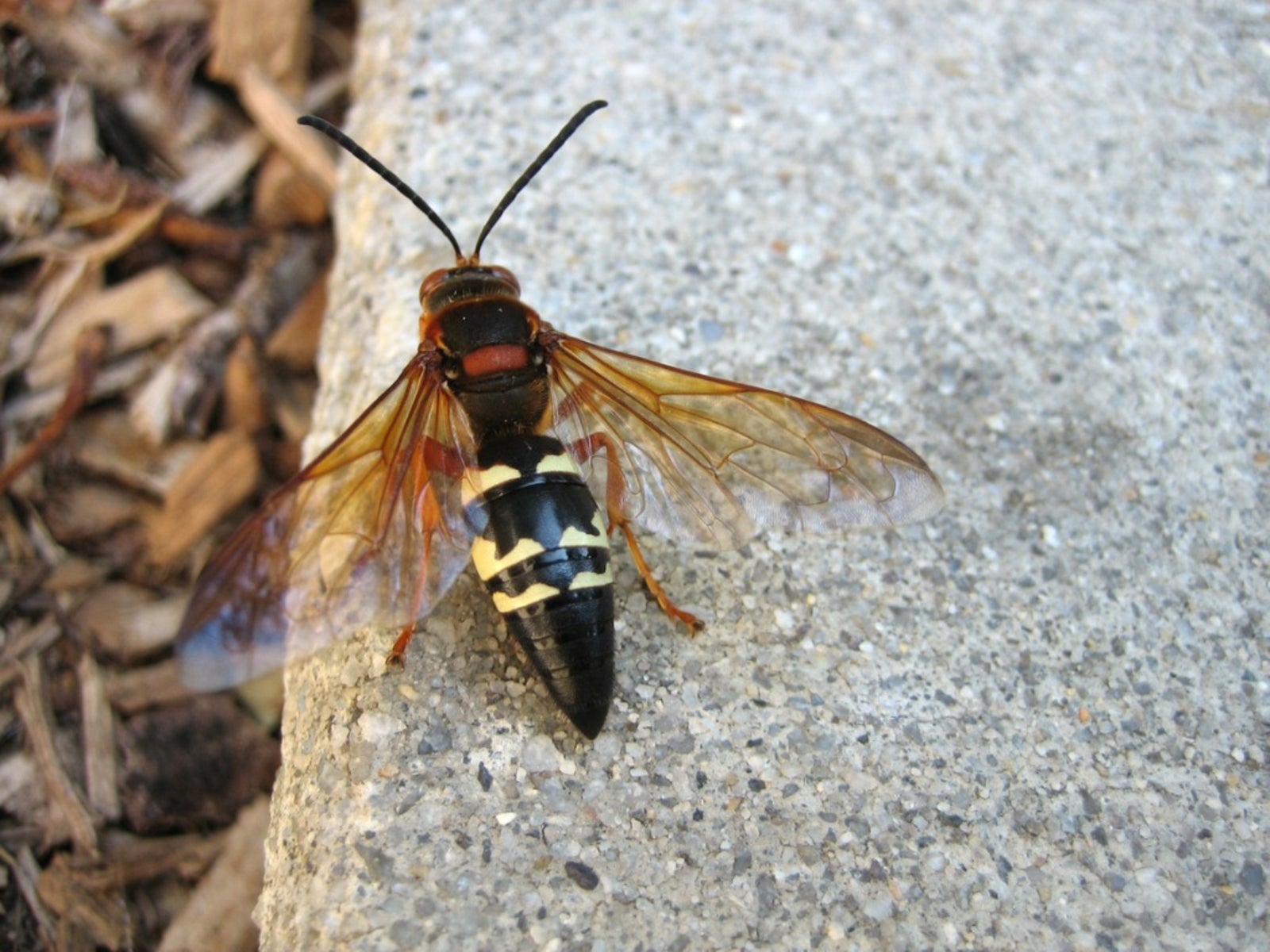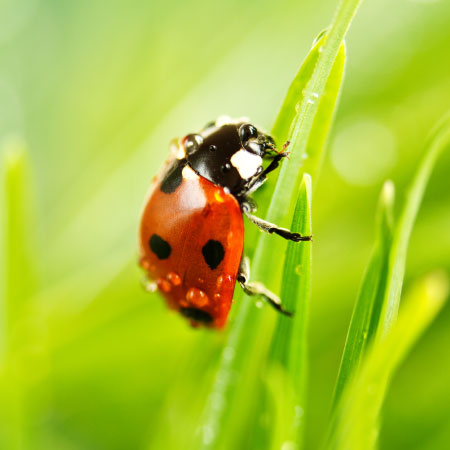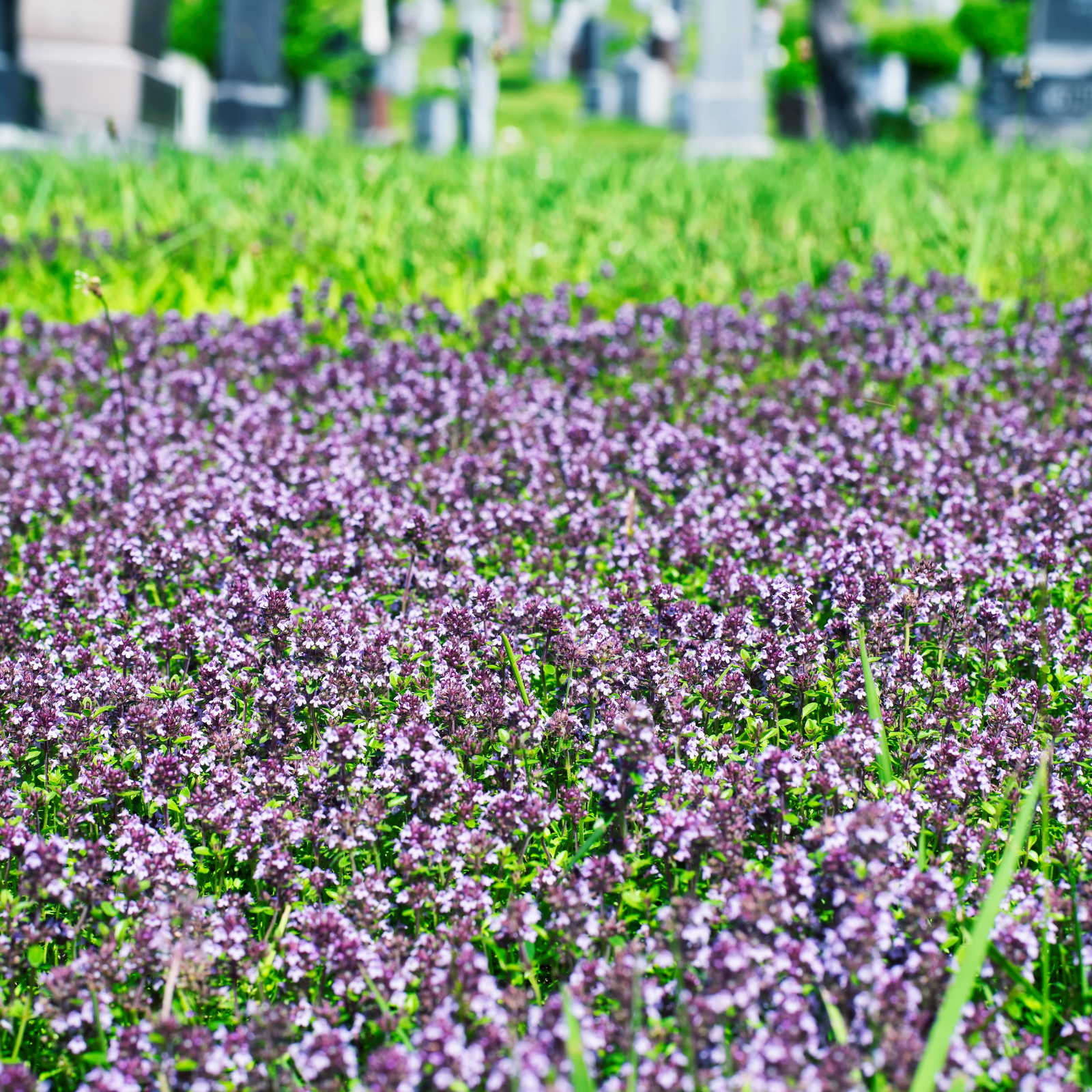Cicada Wasps In The Garden: Tips For Controlling Cicada Killer Wasps


Their sinister buzzing and ¼ inch (6 mm.) long stingers are enough to make most gardeners turn and run from the 1 ½ to 2 inch (3-5 cm.) long cicada wasp hunters, commonly known as the cicada killer wasp (Sphecius speciosus). Although they may give you a scare, cicada killer wasps are actually beneficial garden insects, only inflicting painful stings as a last resort. So exactly what are cicada killers wasps? Keep reading to learn more.
What are Cicada Killer Wasps?
Cicada killer wasps are a group of solitary wasps that feed on flower nectar while paralyzing live cicadas for their offspring. In a garden plagued by cicadas, these large wasps are both a blessing and a curse. This yellow banded wasp rarely bothers gardeners, but they can cause considerable damage to lawns and gardens while excavating the dens where they will lay their eggs. Females do the digging, preferring sandy or loose soils for her ½ inch (1 cm.) wide tunnels. The entire egg-laying complex created by an individual cicada killer wasp is usually no more than 15 inches (38 cm.) below the surface, but tunnels may reach up to 70 inches (178 cm.) in length. Each tunnel can have up to 15 egg chambers that the female must stock with cicadas for her offspring to feed upon when they hatch. It is because of these extensive tunnels, cicada wasps in the garden can spell disaster for transplants or plants with delicate root systems. Lawns may be damaged by their digging, especially when tunnels are extensive and many pounds of soil are dumped above ground. Fortunately, there is only one generation of cicada wasp hunters each year, limiting the damage these insects can inflict.
Controlling Cicada Killer Wasps
Control is rarely warranted for these enormous wasps because of their docile and solitary nature, but if you live in an area where cicada populations are high, your cicada killer wasp family may be willing to tolerate neighbors. Even so, many cicada killer wasps in an unused corner of the yard may not necessitate control. If they are causing severe damage, such as smothering grass or destabilizing patios, knowing how to control cicada killer wasps is useful. Tunnels can be blocked with garden geotextiles and covered in mulch if they are running through flower or perennial beds, but drenching the garden thoroughly with water when the burrows first appear is often enough to deter cicada killer wasps. Careful watering and fertilizing of turf grass will produce lush growth that prevents the wasps from digging in the lawn. When all other efforts fail, applying a tablespoon of carbaryl dust just inside each visible tunnel opening will kill individuals quickly; cyfluthrin or cyhalothrin can be used in areas where carbaryl is no longer available. After destroying the wasps, correct the conditions that made your garden or lawn an attractive place for these wasps or more will arrive next season to take their place.
Gardening tips, videos, info and more delivered right to your inbox!
Sign up for the Gardening Know How newsletter today and receive a free copy of our e-book "How to Grow Delicious Tomatoes".

Kristi Waterworth was a regular contributor to Gardening Know How for many years, answering countless queries on plant pests and diseases.
-
 12 Lush Alternatives To A Lawn For Sustainable Spaces
12 Lush Alternatives To A Lawn For Sustainable SpacesAlternatives to a lawn are beautiful and also beneficial to your local ecosystem and its pollinators. Explore our top picks for plants to replace grass.
By Tonya Barnett
-
 Types Of Tomatoes Explained: Explore The Many Wonderful Shapes, Colors, Flavors, & Best Uses
Types Of Tomatoes Explained: Explore The Many Wonderful Shapes, Colors, Flavors, & Best UsesThe world of tomato varieties is vast and fascinating. Learn about the key types to grow in your garden, tailored to your preferences and space.
By Amy Grant